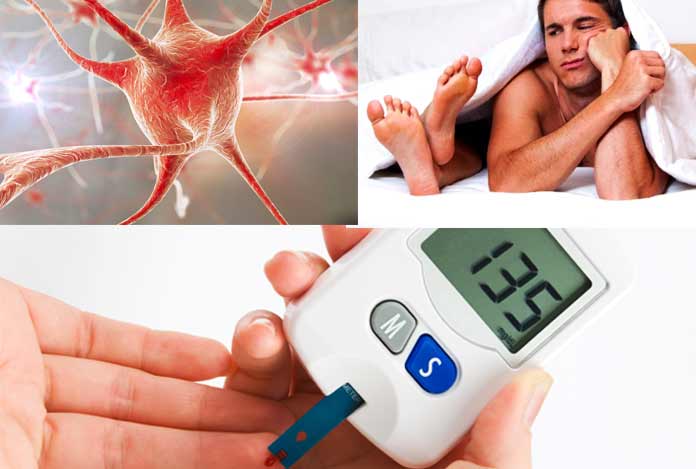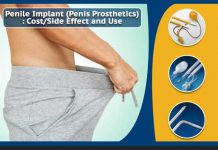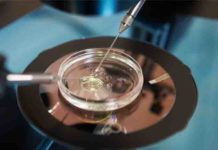
Sexual Dysfunction is the problem experienced by an individual or a couple in getting complete satisfaction from sexual activity. It is an issue arising in any phase of sexual response cycle, which keeps the person or couple from experiencing satisfaction.
Sexual response cycle consists of four phases – excitement, plateau, orgasm and resolution. Desire and arousal constitutes the excitement phase. Around 43% women and 31% men have been reported to have sexual dysfunction. Many people are resistant to discuss this topic. However, they should openly speak up, so that they can get rid of their condition with the available treatment options. [1]
It can occur during any phase of life, and to both men and women of all ages. However, the risk of having the disorder increases with age. Sexual dysfunction can seriously affect a person and impact his/her quality of life.
Around 70% of people is believed to have issues with sex at some point of their life. Many a times, women engage in sex just to keep their partners happy, although they do not feel good about it. But, this does not mean that there is an underlying sexual problem.
If you do not have the desire to have sex or it is just you are not feeling good about it for quite a long time, you may be having some sexual problem. In such a case, you must discuss your issues with the doctor. Anything that you tell your doctor will be private and the doctor will assist you in finding reasons and treatments for your condition.
Types of Sexual Dysfunction/Disorders
These are classified into four categories: sexual desire disorders, orgasm disorder, arousal disorders and pain disorders.
Sexual Desire Disorders:
This disorder is marked by decrease in libido. In this disorder, there is lack of desire to engage in sexual activity or sexual fantasies. There could be a general unwillingness to have sex or lack of sexual desire, may be for the existing partner. This condition could happen after normal sexual functioning for some time or there may not have been sexual desire right from the beginning.
It could be due to the lack of female sex hormone – estrogen in females, or male sex hormones – testosterone in both men and women. Aging, pregnancy, medications and antidepressants could be other potential causes.

Sexual Arousal Disorders:
It is known as frigidity in women and impotence in men. However, impotence has been recently replaced by a new term, erectile dysfunction. This disorder presents itself as an aversion to or avoiding sexual contact with a partner. In this disorder, men may find it difficult to attain and maintain erection. Women may experience less sexual excitement or no sexual pleasure. This may be due to lack of vaginal lubrication or blood not flowing properly to the female reproductive organs.
- Erectile Dysfunction (ED): It is marked by the inability of the male to attain erection of the penis. There could be many causes like damage to the pelvic splanchnic nerves which prevents the male from maintaining erection. Conditions like diabetes, heart diseases can decrease blood flow to the penis. The cause of ED could be psychological or physical. Physical damage is a more severe form. Diseases such as cardiovascular disease, kidney failure, multiple sclerosis and spinal cord injury could be the reasons for ED. The first remedy of its kind to treat ED is sildenafil (Viagra).
- Premature Ejaculation: This occurs when ejaculation occurs before a partner reaches orgasm. The exact length of time for which the intercourse should last cannot be determined. But it is thought that premature ejaculation occurs when ejaculation is under two minutes from the time the penis got inserted in the vagina.

Orgasm Disorders:
These disorders are marked by the absence or delay in orgasm after sexual excitement phase in about 75% of cases of sexual encounters. Being on SSRI antidepressants can delay orgasm and prevent it from happening. Menopause in women also leads to non-attainability of orgasm.

Sexual Pain Disorders:
This disorder generally affects women. It is known as dyspareunia. It may be caused by insufficiency of vaginal lubrication. It may be due to lack of stimulation or excitement, due to hormonal changes caused by menopause or pregnancy, or fear and anxiety about sex. Past trauma like rape or abuse could also be the probable reason.
Causes of Sexual Dysfunction
Endocrine Diseases: An example of endocrine disease is diabetes. It can cause a person to develop impotence. Diabetes affects the utilization of insulin hormone. A side effect of chronic diabetes is nerve damage. It impairs the flow of blood to the genital area and can affect the levels of hormone.
Neurological and Nerve Disorders: Nerves enable the brain to communicate with the reproductive system. Any damage to the associated nerves can forbid a person from attaining erection. Some neurological conditions that might lead to sexual dysfunction are:
- Alzheimer’s Disease
- Multiple Sclerosis
- Brain or Spinal Tumors
- Temporal Lobe Epilepsy
- Stroke
- Parkinson’s Disease
People, who have undergone prostate gland surgery, can also have nerve damage, which may lead to impotence. People, who ride bicycles for extended periods of time may also have to face impotence due to pressure on the genital area and buttocks.
Medicines: Some medications can affect the blood flow which may cause ED. You must not give up on medicine unless you have been asked by a doctor, even if you feel that it to be responsible for ED. Some of these medicines are diuretics like furosemide and spironolactone, and SSRIs like fluoxetine and paroxetine.
Cardiac Conditions: Conditions affecting the heart that interfere with the ability to pump blood can cause impotence. Atherosclerosis is a condition, which causes clogging of blood vessels is known to be a leading cause of impotence. High cholesterol and hypertension are other major causes of impotence.
Lifestyle and Emotional Factors: Emotional factors like depression and anxiety elevate the risk of sexual dysfunction. Performance anxiety could be another cause of impotence.

Cure of Sexual Dysfunction:
There are many treatments available for sexual dysfunction. Treatments include prescription medicines, natural remedies and lifestyle changes.
Prescription Medications: Some medicines used in the treatment of sexual dysfunction are:
- Sidenafil (Viagra)
- Tadalafil
- Testosterone replacement therapy
- Vardenafil
Natural Remedies: Some natural remedies to cure sexual dysfunction are given below:
- Acupuncture
- Ginseng
- Pomegranate juice
Lifestyle Modifications:
- Saying no to smoking and drinking
- Getting rid of anxiety
- Fostering strong bonds in sexual relationship
- Exercising
- Following a healthy diet











